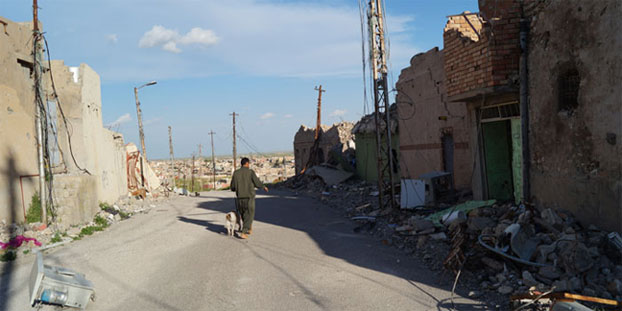Two years ago, ISIS took over the major northern-Iraqi city of Mosul. A reign of terror followed. Now, about 50,000 soldiers from the Iraqi army, the Kurdish Peshmerga and a number of allied militias have started the battle to retake the city. In two reports published over the past 18 months, PAX has been warning about what happens the day ISIS is gone.
It will not be easy – driving ISIS out will not bring peace. PAX has been warning of a day of reckoning, because there is not an overarching plan for the residents, or the people who wish to return to the areas liberated from ISIS control. PAX is setting up local peace committees in an effort to prevent extra-judicial killings or revenge attacks.
Before ISIS took over Mosul, in the northern province of Nineve, around two million people lived in the city. The majority was Sunni Muslim, but the area has long been home to large minority populations, including Christians, Turkmen and Yezidis. Since ISIS took control in Nineve, most of the minorities have fled.
Power struggle
The PAX report ‘After ISIS’, published in June 2015, includes Nineve as one of the so-called ‘disputed territories’, areas claimed by both the central Arab government in Baghdad and the autonomous Kurdish region. The various communities have been caught up in this power struggle. Ridding Mosul of ISIS will not solve this problem. Some ethnic groups have an interest in accelerating the return of displaced persons, others seek to block their return. In this way, ethnic groups attempt to tip the demographic balance in their own favour.
Sinjar
Another PAX report, published in June of this year, deals with Sinjar. In 2014, thousands of Yezidis were murdered or kidnapped. ISIS has since been driven out of Sinjar, but few residents have returned. Many Yezidis do not feel safe, nor do they feel represented by the Kurdish provincial government in Erbil or by the national government in Baghdad. Yezidis are an example of an ethnic minority victimized by the power struggle among Kurdish political parties, as well as by the power struggle between Arabs and Kurds.
Restore Confidence
Supported by both the Dutch and the US government, PAX is working on restoring confidence among communities in areas where ISIS has withdrawn. To this end, PAX has established local peace committees which provide a podium where local communities can express their needs and concerns. Since the start of this year, these local peace committees have helped various communities made agreements with their local authorities. These include agreements on the right of return and proposed compensation for victims and damaged property. The peace committees also try to prevent entire communities from being punished for the fact that some of their members had joined ISIS. In this context, the peace committees emphasize the importance for ISIS members to be dealt with through the legal system. This is not easy, and will take time. The formation, the fighting and the withdrawal of ISIS have been experienced differently by the various ethnic groups. PAX considers the free exchange of information among people at the local level, in which everyone can be heard, as a fundamental aspect of the process of reconstruction in areas recently freed from ISIS.




